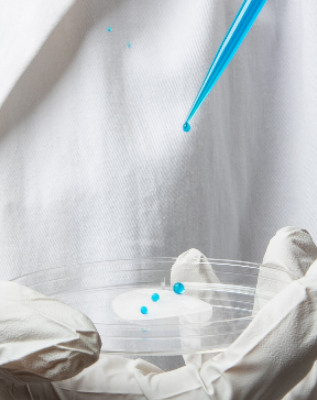New surface too slick for superbugs
 Researchers have created what could be the ultimate non-stick coating.
Researchers have created what could be the ultimate non-stick coating.
The self-cleaning surface can repel all forms of bacteria, preventing the transfer of antibiotic-resistant superbugs and other dangerous bacteria in hospitals, kitchens and many other settings.
The new plastic surface – a treated form of conventional transparent wrap – can be shrink-wrapped onto door handles, railings, IV stands and other surfaces that can be magnets for bacteria such as MRSA and C. difficile.
The treated material is also ideal for food packaging, where it could stop the accidental transfer of bacteria such as E. coli, Salmonella and listeria from raw chicken, meat and other foods.
The new tech has been described in a paper published by the journal ACS Nano.
Inspired by the water-repellent lotus leaf, the new surface works through a combination of nano-scale surface engineering and chemistry.
The surface is textured with microscopic wrinkles that exclude all external molecules. A drop of water or blood, for example, simply bounces away when it lands on the surface. The same is true for bacteria.
The research engineers were able to structurally tune the plastic so that it can be applied to a broad range of surfaces.
The surface is also treated chemically to further enhance its repellent properties, resulting in a barrier that is flexible, durable and inexpensive to reproduce.
The researchers are now testing the material using two of the most troubling forms of antibiotic-resistant bacteria: MRSA and Pseudomonas.








 Print
Print